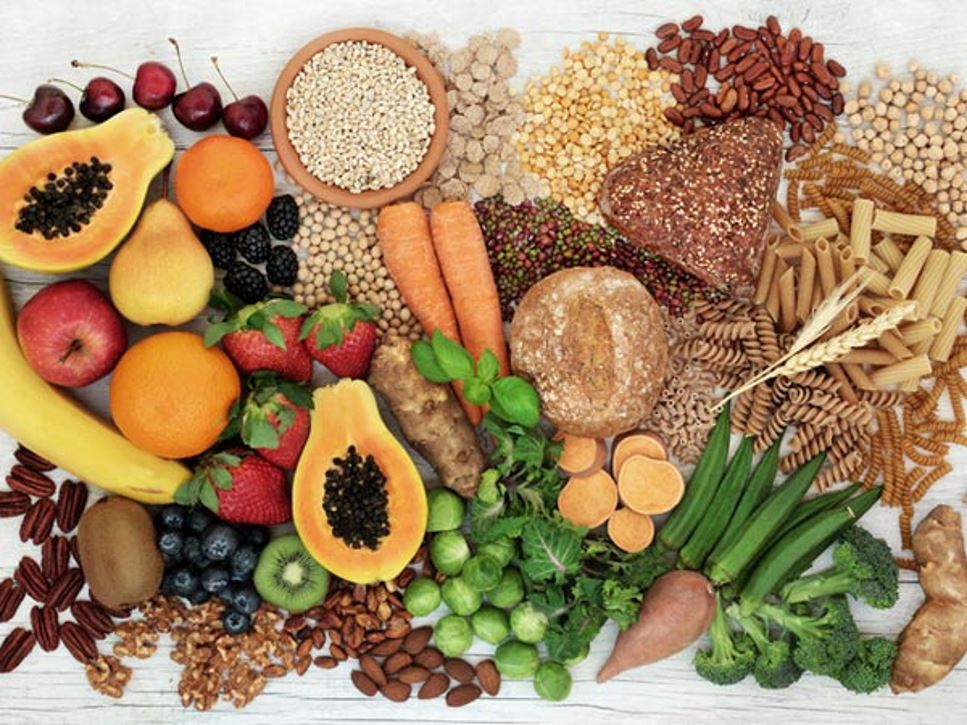8 Everyday Habits That Are Secretly Spiking Your Blood Sugar

Keeping your blood sugar in check isn’t just for people with diabetes—it’s essential for heart health, energy levels, and long-term disease prevention.
But even if you’re eating well most of the time and avoiding large amounts of sugar, some of your daily habits might be sabotaging your blood sugar levels.
Here are 8 sneaky habits that might be spiking your blood sugar without you realizing it—and how to fix them.
1. Starting Your Day With a Sugary Drink
Your morning latte or energy drink might perk you up, but it could also send your blood sugar soaring with high amounts of added sugars.
Here’s how much you might be consuming with some morning favorites:
- A grande White Chocolate Mocha from Starbucks has 46 grams—or 11.5 teaspoons—of added sugar. 1
Starbucks. White chocolate mocha.
- A 16 oz Rockstar Energy Drink contains 61 grams of added sugar—almost 15 teaspoons.
These drinks lack important nutrients, like fiber and protein, that can help stabilize blood sugar—and downing these in the morning on an empty stomach can have a greater impact on your blood bloosugar. r.3
Tip: If you can’t give up your sugary morning coffee, try reducing the added sugars a bit or pairing it with a breakfast that’s high in protein and fiber.
2. Not Drinking Enough Water
Dehydration can cause blood sugar levels to rise—that’s because low water intake can lead to increased levels of vasopressin and cortisol, two hormones that affect glucose regulation. 45
Research shows that increasing your water intake can reduce your risk of developing type abetes. 6
Tip: Sip water throughout the day—and not just when you’re thirsty.
3. Feeling Stressed Out All the Time
Stress triggers the release of stress hormones like adrenaline and cortisol, which can then increase blood sugar levels. 7
Being in a constant state of stress can also make you feel hungrier and crave high-sugar foods.
Tip: Take steps to manage stress—try calming activities like walking, meditation, or even journaling.
4. Skimping on Sleep
Not getting enough sleep can affect your blood sugar levels. Research shows that sleep deprivation not only increases blood sugar fluctuations but also can increase hunger and cravings for sugary foods too. 0.910
Tip: Adults should aim for at least 7 hours of sleep every night. If you’re having trouble sleeping, speak to your doctor or a sleep specialist. 11
5. Downing Sugary Beverages All Day
Your morning coffee isn’t the only blood sugar saboteur—sipping on sodas, chocolate milk, and fruit juices throughout the day can also spike your glucose.
Regularly drinking sugar-sweetened beverages can increase your risk of developing type 2 diabetes and metabolic syndrome. 12
Tip: Enjoy sweetened beverages sparingly, but stick to water, unsweetened tea, and seltzer most of the time.
6. Not Eating Enough Protein and Fiber
Protein and fiber slow digestion and help prevent blood sugar spikes [3]
Don’t think meal order matters? A 2020 study in people with type 2 diabetes actually found that eating protein and vegetables before carbs reduced post-meal blood sugar levels by 40%, compared to eating carbs first.3
Tip: Add some protein (chicken, eggs, tofu) and fiber (veggies, whole grains) to every meal or snack. 13
7. Sitting Too Much
Being sedentary raises your risk of many health conditions, including type 2 diabetes—but even short bouts of activity (like a 10-minute walk after dinner) can help you manage blood sugar. 1415
Tip: The CDC recommends 150 minutes of moderate activity (or 75 minutes of vigorous activity) each week. Try pairing that with at least two days of strength training as well. 6
8. Relying on Takeout and Fast Food
Fast food is loaded with refined carbs, unhealthy fats, and excess calories, which can spike blood sugar levels.
Meanwhile, research shows cooking more at home is linked with lower rates of type 2 diabetes and obesity. 17
Tip: You don’t have to completely ditch your favorite restaurants, but try preparing more meals at home with blood sugar-friendly ingredients like lean proteins, healthy fats, and high-fiber carbs.
What To Do If Your Blood Sugar Is High
Think your blood sugar is too high? Make an appointment with your healthcare provider. They can run blood tests, check your glucose levels, and provide further guidance.
If you do have high blood sugar levels, they can also help you develop a plan to support glycemic control that includes:
- Reducing added sugar and refined carbs
- Increasing physical activity
- Managing stress
- Improving sleep







